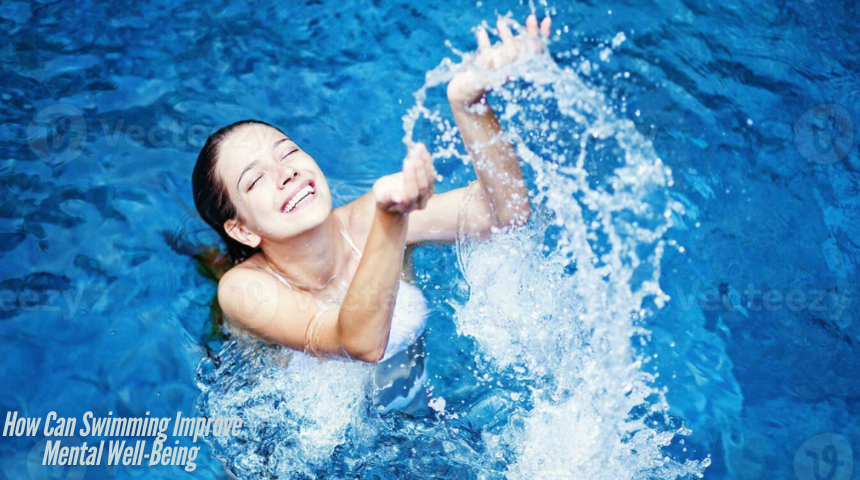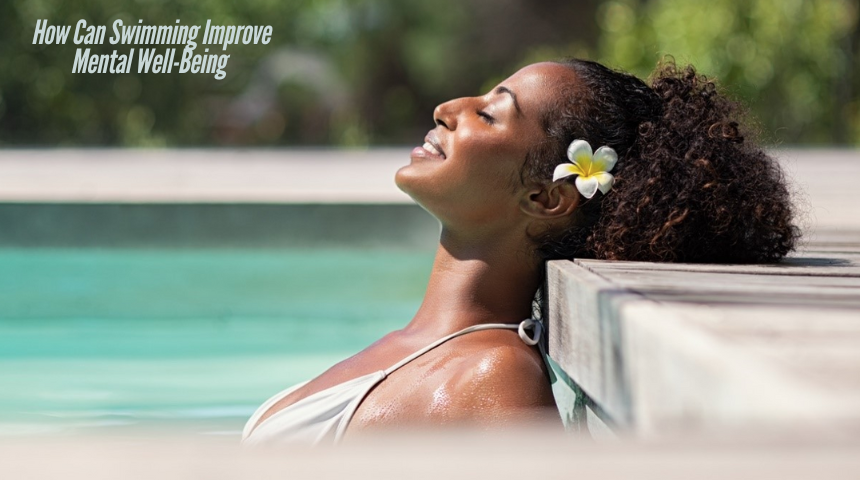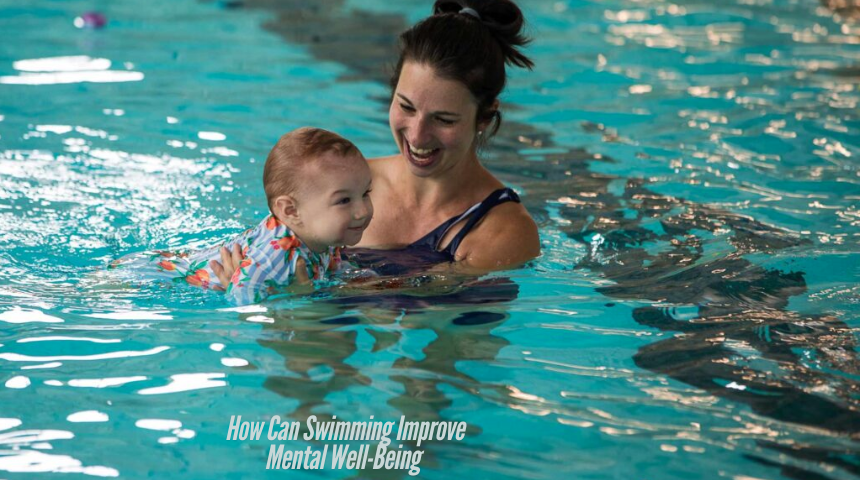How can swimming improve mental well-being is a question worth exploring. This activity combines physical movement with the calming effects of water to create a unique mental retreat.
As I swim, I feel my stress melt away, replaced by a sense of peace. Swimming reduces cortisol, the stress hormone, and releases endorphins that uplift my mood. It sharpens focus, boosts memory, and helps me sleep better.
Whether in a pool or a serene lake, the water’s embrace works wonders for mental clarity. If you’re searching for a way to nurture your mind, take a plunge it might just transform your well-being.
How Can Swimming Improve Mental Well-Being?
Have you ever felt the calming embrace of water as you glide through it, leaving stress and worries behind? Swimming is not just a physical activity; it’s a sanctuary for your mind.
This low-impact exercise has been celebrated for its profound effects on mental well-being. From reducing stress to enhancing mood, swimming can be a transformative experience. Let’s dive into the many ways swimming nurtures mental health.

Stress Reduction
Modern life can be overwhelming, but swimming offers a reprieve. The rhythmic movement of strokes and the soothing sound of water create a meditative environment. Swimming stimulates the release of endorphins, the body’s natural stress relievers, helping you feel more relaxed and centered.
I’ve found swimming to be my go-to activity after a long day. It’s like hitting the reset button on my mind. Research even supports this, showing that aquatic exercise lowers cortisol levels, the hormone associated with stress.
Boosting Mood And Combating Depression
Swimming is a powerhouse when it comes to improving mood. Regular swimming can help combat depression by promoting the release of serotonin, the “happy chemical” in the brain.

After completing a few laps, the feeling of accomplishment also adds to a sense of achievement and positivity. A study published in the Journal of Psychiatry found that swimming significantly alleviated depressive symptoms in participants, making it a valuable tool for mental health management.
Enhancing Cognitive Function
Swimming isn’t just good for the body; it’s a workout for the brain too. The coordination required to swim improves neural connections, which can enhance cognitive functions like memory and focus.
Additionally, increased blood flow to the brain during exercise supports cognitive longevity. A study by the International Journal of Aquatic Research and Education revealed that swimmers often perform better on cognitive tests than non-swimmers.
So, the next time you dive in, remember you’re not only strengthening your body but also sharpening your mind.
Improving Sleep Quality
Struggling with sleep? Swimming might be the answer. Physical activity, especially swimming, promotes better sleep patterns by tiring the body and calming the mind.

The relaxation experienced during swimming helps prepare the body for deep, restorative sleep. Personally, after an evening swim, I find myself falling asleep faster and waking up more refreshed.
Social Connection And Emotional Support
Swimming isn’t always a solitary activity; it can be a fantastic way to build social connections. Joining a swim class or group creates opportunities for camaraderie and emotional support.
The shared experiences in a swimming group foster a sense of belonging and mutual encouragement. These social interactions can be particularly uplifting for individuals who feel isolated or lonely.
Water As A Healing Medium
Water has a unique way of calming the senses. The buoyancy relieves physical tension, while the immersion provides a sensory reset.
Swimming in natural settings like lakes or oceans amplifies these benefits, as the connection to nature enhances the calming effects. For many, the water’s gentle embrace feels almost therapeutic, making it an ideal activity for mental rejuvenation.
How Does Swimming Enhance Brain Health?
Swimming improves brain health by increasing blood flow and oxygen to the brain, which supports neural connections and cognitive functions.
The coordinated movements required during swimming stimulate both hemispheres of the brain, enhancing memory, focus, and problem-solving skills.
Regular swimming also promotes the release of brain-derived neurotrophic factor (BDNF), a protein that supports brain cell growth and repair. Over time, these effects can boost mental clarity and protect against cognitive decline.
What Cognitive Advantages Does Swimming Offer?
Swimming offers several cognitive benefits, including improved memory, focus, and problem-solving skills. The bilateral coordination required during strokes engages both sides of the brain, enhancing neural communication.

This activity also increases blood flow to the brain, supporting oxygen delivery and promoting overall brain function. Additionally, swimming stimulates the release of brain-derived neurotrophic factor (BDNF), which helps grow and repair brain cells.
These advantages contribute to better learning, sharper mental clarity, and a reduced risk of age-related cognitive decline.
FAQ
How does swimming reduce stress?
Swimming lowers cortisol levels and releases endorphins, helping to relax the mind.
Can swimming help with depression?
Yes, swimming boosts serotonin levels, improving mood and alleviating depressive symptoms.
Does swimming improve focus and memory?
Swimming enhances brain function by increasing blood flow and stimulating neural connections.
Can swimming improve sleep quality?
Yes, it calms the mind and tires the body, promoting deeper and better sleep.
Is swimming in natural water better for mental health?
Swimming in lakes or oceans enhances relaxation and offers a deeper connection to nature.
Conclusion
Swimming is more than a sport; it’s a holistic therapy for the mind. By reducing stress, boosting mood, enhancing cognitive functions, and improving sleep, swimming offers a comprehensive approach to mental well-being.
Whether you’re taking a solo dip in the pool or joining a group session, the benefits are undeniable. I encourage you to make swimming a part of your routine.
It’s not just about the laps you complete; it’s about the peace and clarity you gain along the way. Dive in, and let the water transform your mind and spirit.